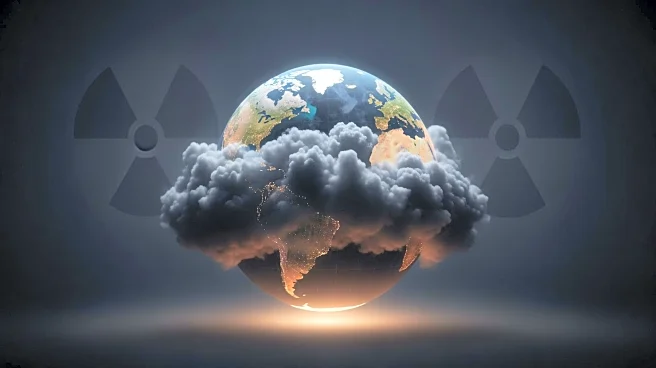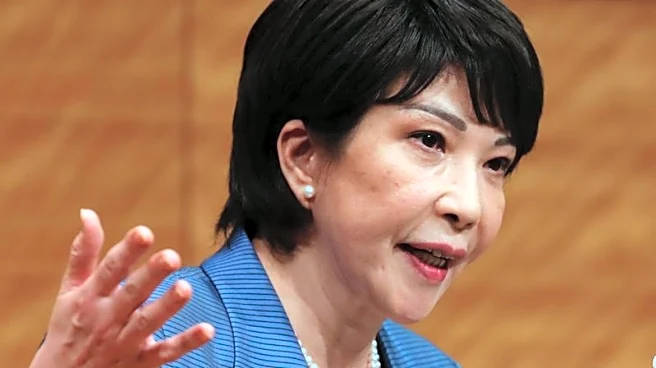What's Happening?
Russian President Vladimir Putin has instructed his officials to prepare proposals for potentially resuming nuclear tests. This directive comes in response to President Trump's recent comments suggesting the U.S. might restart its own nuclear testing.
During a meeting with Russia's Security Council, Putin emphasized that Russia would only resume testing if the U.S. does so first. He tasked the defense and foreign ministries with analyzing U.S. intentions and developing plans for nuclear tests. President Trump had indicated on social media that the U.S. would conduct tests on an 'equal basis' with Russia and China, although U.S. Energy Secretary Chris Wright clarified that these tests would not involve nuclear explosions. The U.S. has not conducted nuclear detonations since 1992, adhering to the Comprehensive Nuclear Test Ban Treaty, which it signed but did not ratify.
Why It's Important?
The potential resumption of nuclear tests by Russia and the U.S. could escalate global tensions and impact international arms control agreements. If both nations proceed with testing, it may undermine the Comprehensive Nuclear Test Ban Treaty and provoke other nuclear-capable countries to follow suit. This development could lead to increased military threats and a new arms race, affecting global security and diplomatic relations. The situation is particularly significant for countries involved in nuclear disarmament efforts and those advocating for non-proliferation. The strategic balance between nuclear powers could shift, influencing geopolitical dynamics and international negotiations.
What's Next?
Russian Defense Minister Andrei Belousov has suggested immediate preparations for nuclear tests on the Novaya Zemlya archipelago, a site previously used by the Soviet Union. The Russian military is poised to begin these preparations, contingent on further developments from the U.S. Meanwhile, President Trump’s administration may face pressure from international and domestic stakeholders to clarify its stance on nuclear testing. The global community, including arms control advocates and non-proliferation entities, will likely monitor these developments closely, potentially leading to diplomatic engagements or calls for restraint.
Beyond the Headlines
The resumption of nuclear tests could have profound ethical and environmental implications. Testing may lead to radioactive contamination and long-term ecological damage, particularly in sensitive regions like the Arctic. Additionally, the move could challenge existing international norms against nuclear proliferation, raising questions about the commitment of nuclear powers to global disarmament. The situation underscores the complex interplay between national security interests and global peace efforts, highlighting the need for renewed dialogue and cooperation among nuclear states.


















